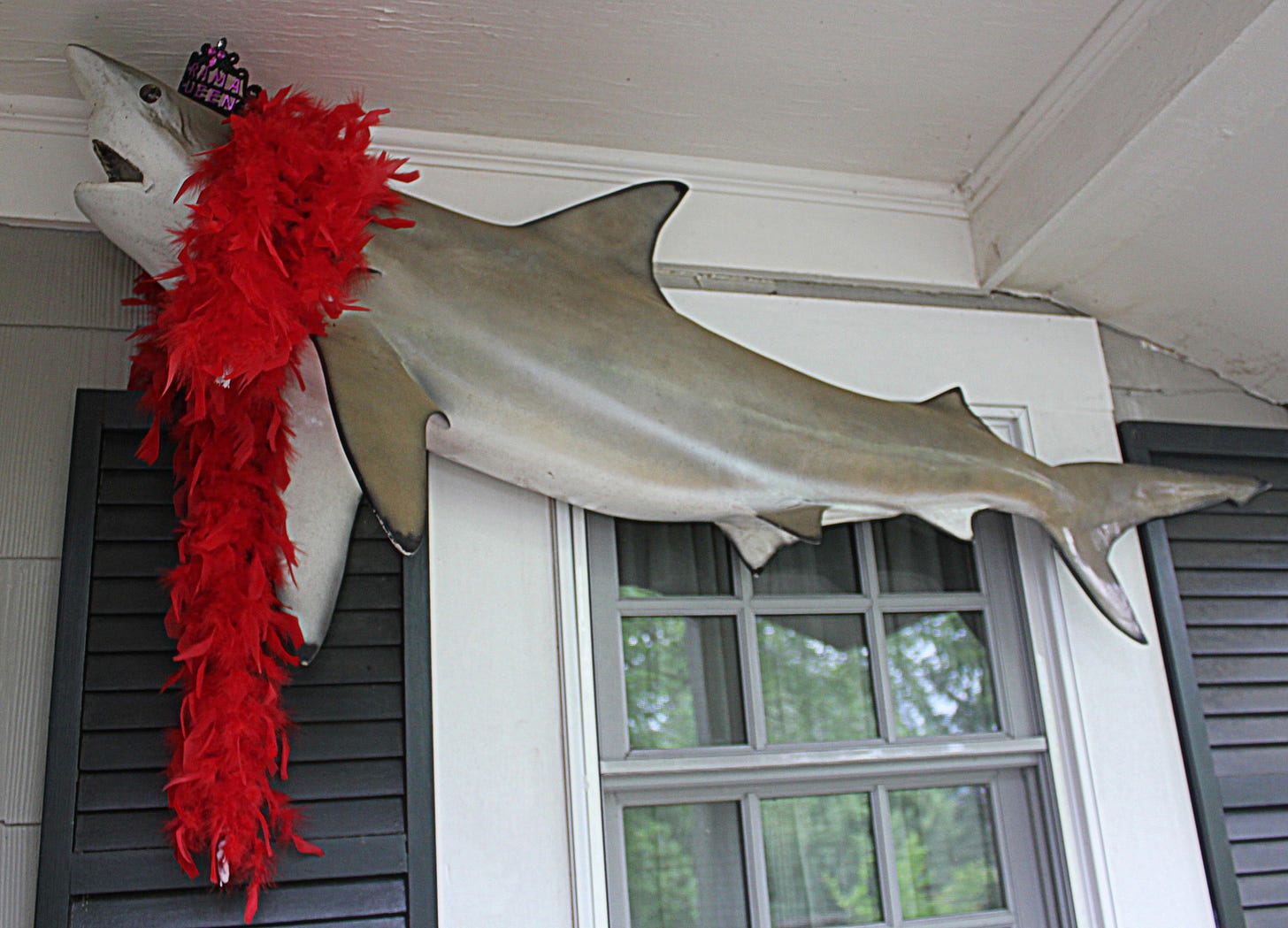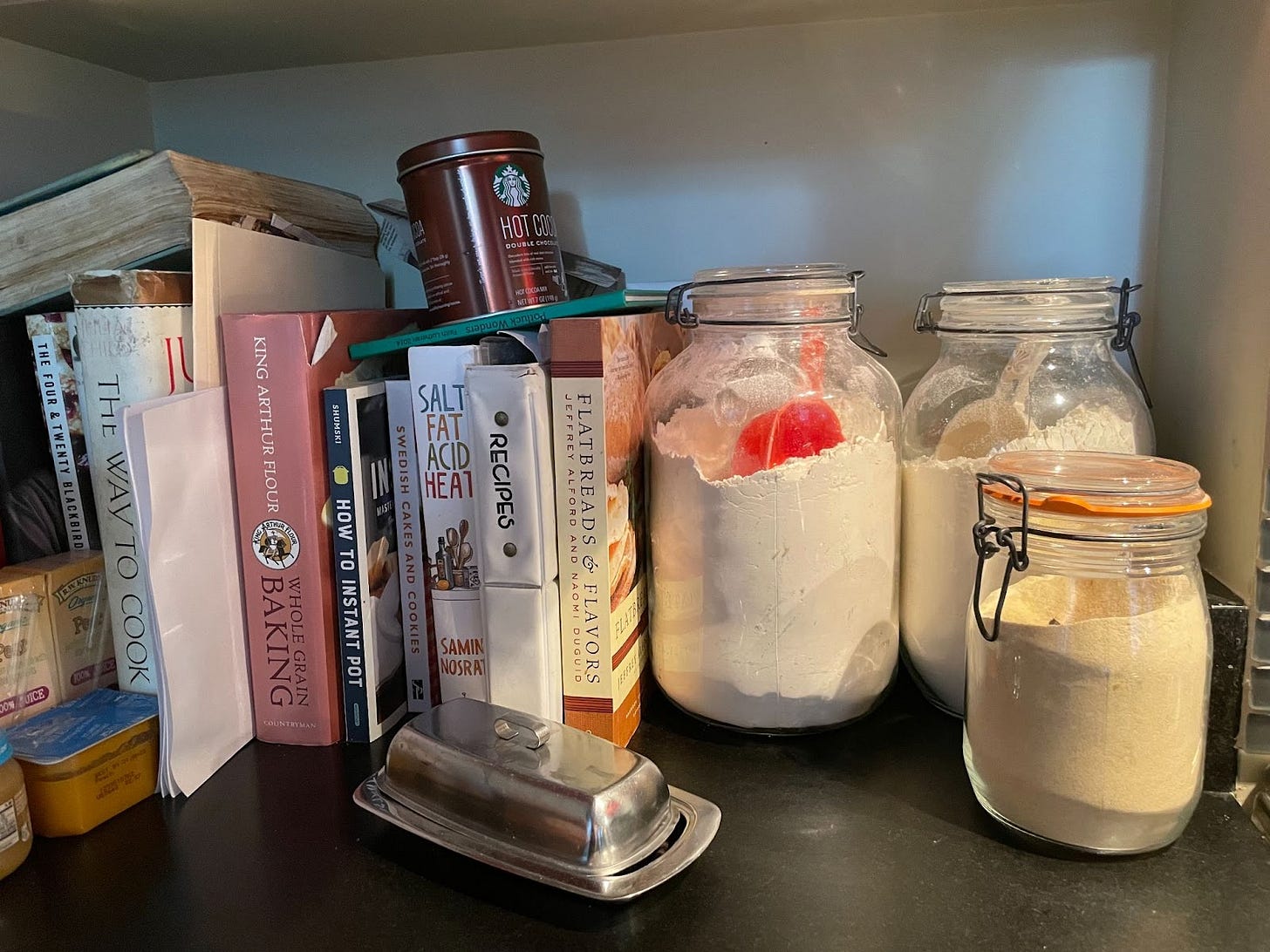Finding Fathers
a lesson in objectification
I have a recording on my phone from a few years ago in which my dad has three of my four boys rapt by a story about a net, a tent and a snake. I stumbled into the room and the story late and hit record without him knowing.
The story has a long exposition. He describes, in excruciating detail, how a mosquito net in Vietnam worked. And then there’s the lengthy undress: he takes off his green socks, the green bands that held up his socks, his green camos, his green underpants. It’s like a podcast of the world’s least sexy striptease. There are a lot of interrupting questions– them for clarity, him for buildup. And there’s a red herring that includes a stolen generator and listening to The Association—his commander’s favorite band—nonstop for a year.
At long last, the snake enters. And we understand the intense attention to the color of all his clothing. The snake is also olive drab, lying camouflaged in my dad’s camouflage. But it’s got black stripes, and when it moves across his hooch, my dad, naked in his cot with mosquito netting his only defense, spots it, for the stripes.
“There’s two types of snakes in Vietnam: a one-step and a two-step. Do you know what that means?”
“Nuh uh.”
“A one-step means you have one step after it bites you before you die, a two-step means you have two steps until you die. Do you know what this one was?”
“Nuh uh.”
“This one was a krait. A krait is a one-step.”
“So was it poisonous?”
“It’s ten times more venomous than a cobra.”
Whenever my kids want an original story, I make them give me the characters first— names, species, relationships to one another. I hate starting with a blank page and their character list gives me enough time to get into gear.
But my dad’s stories don’t originate—or at least don’t depend upon—people. It’s the objects of a story he relishes. The floorboards and beating heart in “The Tell-Tale Heart”; the seven burning candles and scrap of robe in “The Pit and the Pendulum”; the 14 grand pianos, the labyrinth of stacked newspapers, and the Model T Ford in the Collyer brothers’ Harlem brownstone.
And when he told me of the poverty of his childhood, it was about the neighbors’ Coca - Cola machine on their porch; the home-dug pool; the lawnmower that sawed off someone’s toes; the chickens defeathered in a hurricane; the lead cars dropped in his dad’s homebrewed beer; the fumes of gasoline he huffed in the garage, alone at five years old, until he passed out and had to be scraped off the floor by a neighbor passing by.
While he calls himself an only child, my father was born a twin. His twin, Peter, was born with hydrocephalus, “water on the brain”, and though my grandmother insisted they were identical, from the one photo I’ve seen of my dad and Peter, it’s impossible to see the likeness for the swollenness. My father has no memory of Peter at home. His twin was sent to a care home by the time they were two. And my grandmother shuttled back and forth between her boys, waiting for Peter to die.
After, my grandparents’ marriage erupted. Their hatred hot, penniless, they dragged my dad into it, and lost more. Somehow, in 1955, my grandfather got primary custody. My grandmother, Mamá (the accent on the second syllable, like in Spanish, at her request), hung around for a little while, but left to finish her college degree and supported herself by nannying. My dad never talks about it directly, but my mom tells the story of him visiting Mamá for the first time. He rode two hours on the bus to her, where my dad bore witness to a loving, functional home.
Finding my dad in these stories has been like pinning part of a cracked egg shell to the side of the bowl. I’ve had to fish for him. If the pressure is too direct, the conversation is over faster than the question. So I’ve asked around it, avoiding names as much as possible.
Mamá became a missionary, lived in Guatemala, Côte d'Ivoire, Rapa Nui, points far and at a distance. When we were children, she visited once a year and she’d bring trash bags of flea market toys. As soon as they emerged from the black plastic, I fantasized about how I’d get rid of them. Collected over a year, they were always too immature and too bruised.
As Mamá was dying, my father was with her. My mother was certain this would be the moment Mamá would talk about the years they were separated from one another, tell him that she was proud of all he’d become. But Mamá did neither. And when my mom and I joined him in Biloxi to clean out Mamá’s house, five years before Hurricane Katrina would wipe it out entirely, the underside of her bed was littered with empty vodka bottles.
Like his mother before him, my dad’s gifts are strange. He insists on wrapping them in newspaper, always. They show up late on Christmas Eve, dingy and lonely next to the shiny gold, silver, red and blue paper of the other presents. And they’re usually second-hand.
One year, he gave my mother a street light from Waco, Texas, as big as a first-grader, wrapped in pages of newspaper. Another, a fly made out of junk from Berlin. A leaping bronze bull he named Tammy, a taxidermied armadillo, a Civil War cannonball, a shark named Robert that he dresses up for occasions. Their bookshelves are littered with these oddities. Periodically, my mom brings them down to the cellar. My dad brings them back up again.
My mother finally stopped my dad, told him “just a piece of jewelry would be nice”. And now he buys her gold necklaces, bracelets. But he doesn’t pay attention to the style, it’s just for the gold of them. “You could melt them down if you needed,” he says.
We don’t talk on the phone much, but for my visit each summer, dad cuts out articles that remind him of me or that he thinks will interest me. He leaves a pile of clippings, dates ranging over the last couple months, on my dresser. Readings for the night of my arrival.
This time last summer, my father-in-law was dying. He called to tell me he had a question for me. He was breathy, his voice made cavernous by the cancer, so I retreated to a room without my kids—the room I’m writing in now—where I wouldn’t miss anything he said. We were all scrapping for the words Tim uttered in his final months; the moments he felt well enough to talk, ferreting his words in holes and boxes where they couldn’t be lost and we’d have them still when he was gone. One more unfair expectation laid heavily at the feet of the dying.
“I would like it if you wrote me a poem, a poem for my memorial service. Would that be okay?”
When Tim visited, he’d often pick a poetry collection I’d acquired since his last visit off my shelf and read it through. But when he got sick, I started to send poems more regularly. He, a man who had spent so much of his life reading, didn’t have the stamina for longer texts. I began reading for him, forwarding poems I thought would mean something to him or offer some small comfort or distraction.
After that phone call, I had one last visit with my father-in-law. My husband and mother-in-law took the kids to the playground so we’d have time just the two of us. We sat together on his balcony in the sun. He was so thin. Even in Cambridge July, even under a down comforter, he grew cold. So we retreated into his office where amidst his photographs and electronics, he kept asking me what I wanted, his breathing more and more wispy. At first, I thought he meant what of his photos, his camera equipment, his fancy printers I wanted. But then I realized he meant out of life.
I wanted so badly to have an answer. I wanted him to know before he died what I wanted. I wanted him to know that I knew what I wanted. I made several stuttering attempts. Then I stopped and answered honestly.
“I don’t know.”
After my father-in-law died, each morning, I closed myself in a room to write about him. I made lists and wondered how to capture a man who could talk about and love people so well. How I could speak of a man when I couldn’t even answer his final question to me.
I gathered the objects I remembered around him: the tea; the loaves of bread he baked for every occasion, in any kitchen available to him; the loons he laughed at, preening on the Atlantic; the maps he’d pour over for my runs around Cambridge; his Keds before they came back in fashion; his sleeping bag of a bathrobe; the shells he’d consider seriously when children gifted them; the red maple outside his bedroom window.
I applied the lessons of my father for my father-in-law and did what I could, with these crumbs. Sometimes the objects of the story will kill you, but sometimes, too, they’ll keep you alive.





I love the way you waeve the stories between the two Dad's.
Your writing is really funny, yet intense. And I need to learn headlines from you!
I loved learning more about the dads..you are so insightful, love this piece.